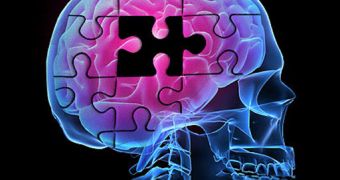According to a new research carried out by Canadian physicians, a drug typically used to treat people suffering with diabetes could be used to improve on the mental abilities of those affected by Alzheimer's.
Thus, it seems that the laboratory-based experiments carried out as part of this researcher have shown that, when treated with a diabetes drug referred to as AC253, several animal brain cells whose makeup and functions were altered by Alzheimer's somehow ended up returning to normal, at least to a certain extent.
The specialists who looked into this issue explain that what it all comes down to is the AC253's ability to block amyloid, a protein whose presence in the human brain is presently listed as the most likely cause for an individual's developing Alzheimer's.
Since the AC253 blocks said protein, researchers believe that it could be used not just to keep Alzheimer's from progressing, but also to reverse the damage caused by this medical condition to one's mental abilities.
Huffington Post quotes study leader Jack Jhamandas, presently working with the University of Alberta, who supposedly made a case of how, “Drugs like this might be able to restore memory, even after Alzheimer's disease may have set it.”
As well as this, these physicians hope that, if administered to a person predisposed to developing Alzheimer's, this drug will also help prevent the onset of this medical condition.
Thus, they believe that they can “stop the impairment of behavior and cognition altogether in animals destined to develop Alzheimer's.”
For the time being, the bulk of the research concerning the possibility of using said diabetes drug to treat Alzheimer's involved brain cells collected from mice, yet specialist Jack Jhamandas and his team are quite confident that, in about five years' time, they will be able to debut a clinical trial.
Meanwhile, one other team of specialists are trying to cure Alzheimer's with the help of so-called brain pacemakers.

 14 DAY TRIAL //
14 DAY TRIAL //